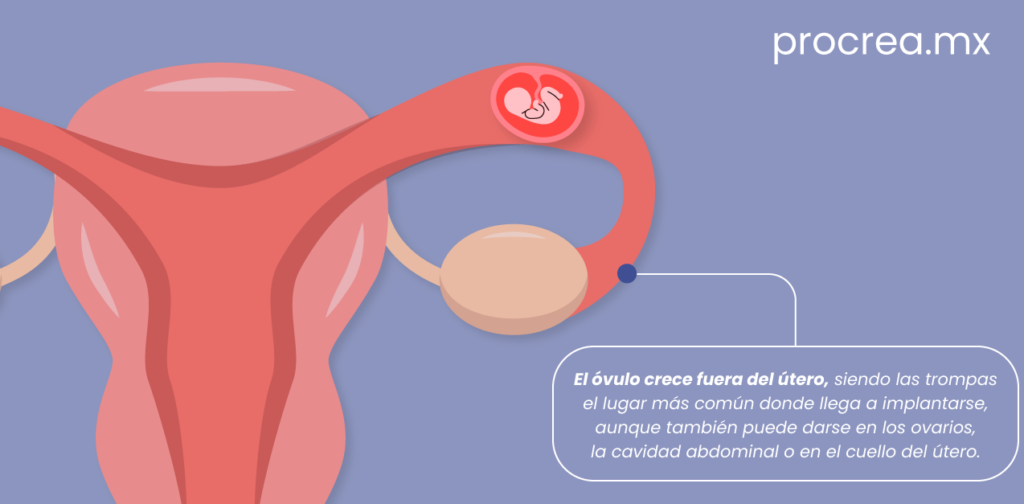Ectopic pregnancy happens when the fertilized egg implants in the fallopian tube or ovary instead of the wall of the uterus. This condition is uncommon, however it is very important to detect it in time to avoid internal bleeding, infection and in some cases, death. Learn everything you need to know about ectopic pregnancy.
What is it?
In a normal pregnancy, the fertilized egg travels through the fallopian tubes to implant in the uterus and develop into an embryo. However, in an ectopic pregnancy. , this does not happen. The egg grows outside the uterus, with the fallopian tubes being the most common site of implantation. It can also occur in the ovaries, abdominal cavity, or cervix.
These pregnancies cannot progress because the tissues outside the uterus do not provide the necessary blood supply and support. The structure containing the fetus usually ruptures between 6 and 16 weeks, long before it can survive on its own. If not detected early, it can endanger the woman's life.
Once the specialist confirms the diagnosis, the first step is to determine the location of the fetus through a blood test and ultrasound. The pregnancy is then terminated either through surgery or medication.
Causes of ectopic pregnancy.
The exact cause of this type of pregnancy is not always known. However, it is often associated with hormonal imbalances, abnormal egg development, or damage to the fallopian tubes. Some other factors that increase the likelihood of ectopic pregnancy. include:
- Sexually transmitted diseases
- Getting pregnant with an IUD, tubal ligation, or tubal reversal
- Endometriosis
- Previous ectopic pregnancy
- Smoking
Symptoms
Some signs that may indicate an ectopic pregnancy. include vaginal bleeding, pelvic pain, severe dizziness, fainting, shoulder pain, or common pregnancy symptoms (absence of menstruation, breast tenderness, and nausea). It is also possible to have no symptoms until the structure containing the embryo ruptures. At that moment, the woman will experience intense pelvic pain, a risk of hemorrhage, and low blood pressure. Therefore, regular check-ups can be crucial in preventing this situation.
We understand that going through this process can be very difficult, so it is important to take time to grieve the loss. Having had an ectopic pregnancy. does not mean that a normal pregnancy cannot be achieved in the future. Most women who have experienced this can have healthy pregnancies, depending on the condition of their fallopian tubes and the treatment they received.
Do not hesitate to seek support if you suspect any symptoms or need a medical evaluation. Reach out to us , and we will be happy to assist you. Whether you long for a pregnancy or have had an ectopic pregnancy before, we can help.















